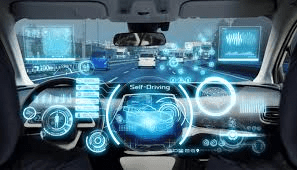- Only 20% of people in Wales and the South West are comfortable with the idea of travelling in a driverless car
- 71% feel uncomfortable about autonomous vehicles
- IMechE calls for more trials of driverless cars on UK roads
Only 20% of people in Wales and the South West feel comfortable with the idea of travelling in a driverless car, one of the lowest levels in the UK, according to a new opinion poll from the Institution of Mechanical Engineers.
The poll found that 71% of adults in Wales and the South West are unhappy with the thought of being an occupant in an autonomous vehicle, with most people concerned about the lack of human control and the car not being able to deal with challenging road conditions, such as an accident.
Scots expressed similar caution while people in the South East had the most positive view of autonomous technology, with 31% comfortable with the idea of self-driving cars and 59% feeling unhappy about being in a car without a driver behind the wheel.
The survey found that 35% of adults in Wales and the South West thought the UK would never switch to having only driverless cars on the roads, with 65% of people saying they would always prefer to drive themselves rather than use an autonomous vehicle. These results are similar to elsewhere in the UK.
The poll results outline the challenges car manufacturers and technology companies face in building public trust in autonomous driving systems, which was dented last year by news of the crash of a driverless Uber vehicle in Arizona killing a pedestrian.
In its report on the survey, “Public Perceptions: Driverless Cars”, the Institution calls for more trials with autonomous vehicles sharing the roads so that people can see the cars in action and have a chance to ride in them.
“Consumer confidence is essential for autonomous technology to succeed, but if anything, that confidence has waned in the last two years. During that time, there have been very few controlled trials on our roads to allow people to experience the vehicles at first hand. As engineers, we remain convinced of the need to explore the potential advantages the technology offers,” said Dr Colin Brown, Chief Executive of the Institution of Mechanical Engineers.
“The Government has plans for trials of self-driving cars on roads in Edinburgh and London by 2021, but we would like to see many more taking place in other locations in the UK.”
The poll found attitudes towards autonomous technology varying significantly by gender and age. A third of men in the UK are comfortable about travelling in a driverless vehicle, less than one fifth of women say the same.
It found 42% of people aged between 18 and 24 feel confident about being an occupant in a driverless car, compared 11% for those aged 75 and over.
The poll was carried out by ICM and surveyed 2,014 adults in the UK in July 2019.
The report “Public Perceptions: Driverless Cars” recommends:
- We need to see more trials with autonomous vehicles sharing the roads. This will allow people to experience these vehicles in action, validate the technology and increase public confidence. Areas such as business parks, airports, university campuses and potentially small towns could be used as controlled sites for autonomous vehicles.
- The Government must accelerate the development of the regulatory framework for testing and use of autonomous cars, insurance liability, tax and revamped Highway Code to ensure clarity for road users in the near and longer term.
- The industry and government should continue to collect data to assess driverless cars to show if the technology can deliver the safety, pollution and cost benefits it promises. These data could also be used to influence a shift from individual driver insurance towards insurance for the vehicle.
Help keep news FREE for our readers
Supporting your local community newspaper/online news outlet is crucial now more than ever. If you believe in independent journalism, then consider making a valuable contribution by making a one-time or monthly donation. We operate in rural areas where providing unbiased news can be challenging. Read More About Supporting The West Wales Chronicle


























